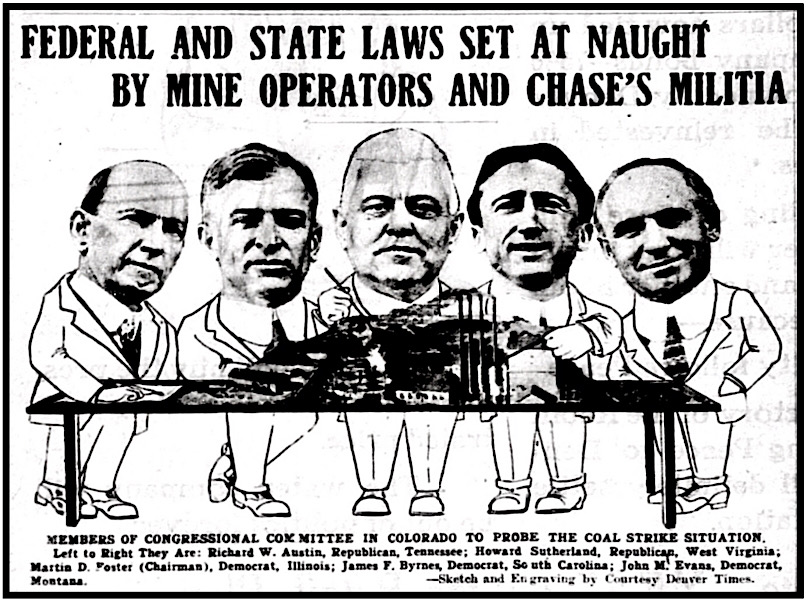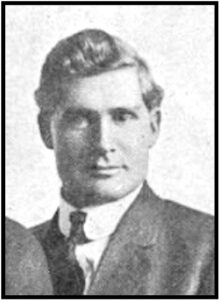Sarah Slator, a witness produced and sworn before the committee, on oath testified as follows:
Examination by Mr. Brewster [Attorney for the Miners]:
Q. Your name is Sarah Slator ? — A. Yes.
Q. You spell your name S-l-a-y-t-o-r ? — A. S-l-a-t-o-r.
Q. S-l-a-t-o-r?— A. S-l-a-t-o-r.
Q. Where do you live, Miss Slator? — A. At — on 818 East Main
Q. In what city? — A. Trinidad.
Q. Colorado? — A. Colorado; yes, sir.
Q. How old are you? — A. I am 16.
Q. Were you born in Trinidad ? — A. Yes, air.
Q. Is your father living? — A. Yes, sir.
Q. What do you do ? — A. I attend school.
Q. And you have been to school this morning ? — A. Yes, sir.
Q. Just got in ? —A. Yes, sir.
Q. Now, do you remember the parade A. Yes, sir.
Q. The women’s parade? -A. Yes, sir.
Q. Did you see a man known as Gen. Chase on that day? — A. Yes,
Q. Now, begin and tell in your own way where you were when you first saw Gen. Chase, and what happened to you thereafter ?- A. Well, I was in front of Dr. Espey’s place when I first — – —
Q. Dr. Espey’s place is on the corner of what street ? — A. Of Main – and Walnut.
Q. Main and Walnut? As related to the post office, where is it? — A. It is a block east of the post office.
Q. A block east of the post office. That is, this way from the post office? — A. That way [pointing apparently north].
Q. Oh, Espey’s place is beyond the post office? — A. Yes, sir.
Q. I see. Now, tell where you were standing and what happened? — A. I was standing in the middle of the car tracks this side of Espey’s when I first saw Gen. Chase, and he was on horseback: and there was also another officer on horseback, and they were running through the ranks backward and forward, and trying to make the women return toward West Main; and I was standing alone watching the women go ; and then Gen. Chase came up on horseback, and he rushed right by me on his horse, and he said, “Get back there,” and I was somewhat dazed by the horse running up against me, and I stood there, and he kicked me and told me to get back.
Q. Now, where did he kick you? — A. He kicked — his foot went right up this way on me [indicating breast].
Q. Well, go on. — A. And then he told me to go back ; and then the other officer came to him to help him to make me go back.
Q. Wait a minute. It needed two — was this Gen. Chase that you speak of a small man? — A. No, sir.
Q. Is he a pretty large man? — A. Yes, sir.
Q. And it needed another officer to help him — to make you get back? — A. Evidently; because the other officer came up to him.
Q. Well, what happened then ?— A. Well, then a good number of women had passed, and they gave a sort, of a triumphant yell as they passed ; so both the officers turned to attend to the other women, and got past; and then Gen. Chase’s horse became frightened at some thing — I don’t know what it was — and it ran into a horse and buggy that was there, and he fell off the horse.
Q. That is, Gen. Chase fell off the horse ? — A. Yes, sir.
Q. Go ahead. — A. And he had been treating us so mean that everybody screamed and laughed at him, and that made him angry; and he gave the order that they were to “ride down the women.”
Q. What, precisely, were his words? — A. Well, I didn’t hear all of his order, but I heard that — “Ride down the women,” and “Make them get back.” So then the cavalry that were stationed in front of Maoluff’s place — that is a little bit beyond Walnut Street — they commenced to try to get the women to return to Main Street, or to Commercial Street.
Q. By the way, how did you know this was Gen. Chase ? — A. Well, I didn’t
Q. Describe him? — A. I didn’t know him then, but I met him afterwards.
Mr Brewster: Describe him also.
Chairman Foster [U. S. Representative, Chairman of Committee]: She needn’t do that.
Q. You met him afterwards ? — A. Yes, sir. So they then came up, and then when they started in I went — stepped on the sidewalk then — I had been in the middle of the street — and then I saw the soldiers take the flag from a woman — I don’t know who the woman was — and that made the women angry, and those that had banners, they tried to hit the militia that had the swords, and I saw several of the hats that the women had that were thrown in the mud in front of Maoluff’s place; and then I stepped up on that little platform in front of the printer’s place there, and of course the horses could not come up on the platform, and we stood there for a few minutes; and then they sent the infantry to make us get off the platform. And after that I attempted to try to go up Walnut Street to return home, and then they ordered me back to Main Street; one of the militia was on horseback — he tried to hit me with his sword.
Q. Now, what happened when he tried to hit you with his sword ? — A. He was just trying to order me back to Main Street, and I was standing there watching him, and he came up and he attempted to hit me with his sword, and I stepped behind a telephone post, and he hit the telephone post instead of me.
Q. Was it a light tap [tapping] ? — A. No ; he hit it pretty hard — if it had hit me. Then I said to him, “Break your sword ; I don’t care,” and he again attempted to hit me, and he hit the telephone post twice after that. And then I went across the street — that is, to the north — southwest corner of Walnut, and I was there met by a militiaman on horseback, who was talking to a woman, and he told them — she asked them what right they had to chase women away like cattle, and he said, “When the women sink beneath our respect, they need to be treated like cattle,” and I asked him how we had “sunk beneath his respect,” and he didn’t answer me. Then I went up Main Street, and I was left alone, practically, until I got to Kuver’s, and when I was in front of Kuver’s there, there was three militiamen came up to me and told me to move on. I had been going at a pretty slow rate; so I went on, and I got in front of the — in front of Zimmerman’s, I saw two militia — I mean four militia, with two women, taking them to prison; and I shamed them for having to take four militia to take two women.
Continue reading “Hellraisers Journal: Sarah Slator, Age 16, Testifies Before Congressional Committee, Describes the Charge of General Chase Against Parade of Women and Children” →
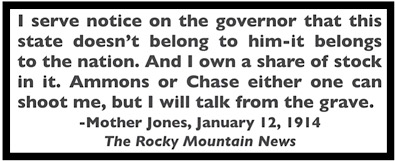 —————
—————
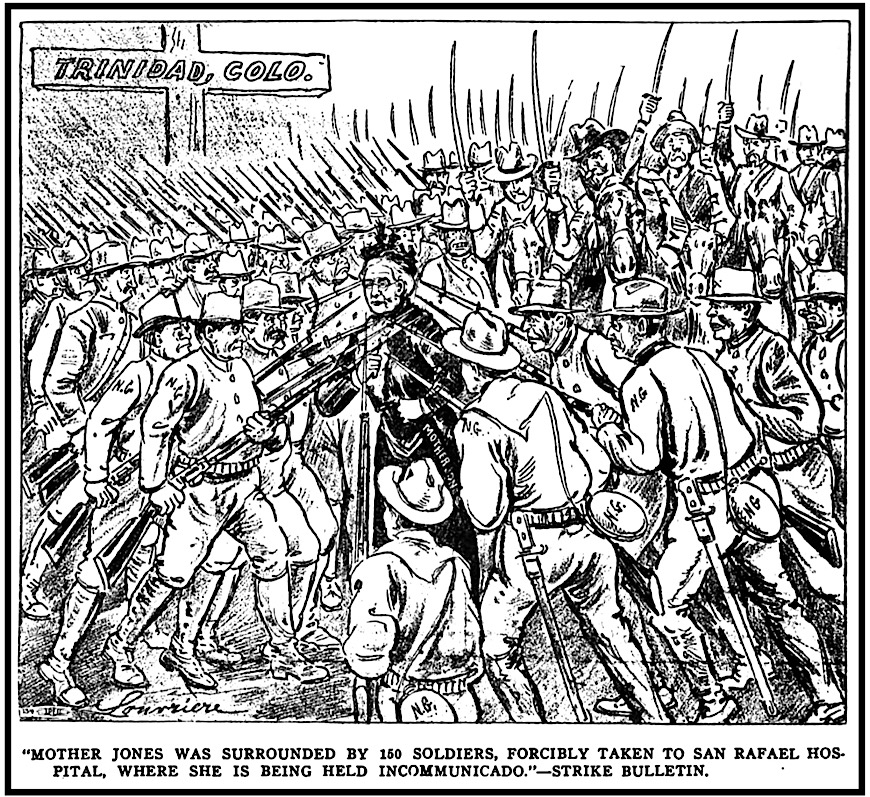
 —————
—————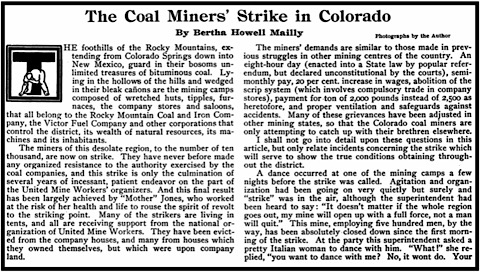
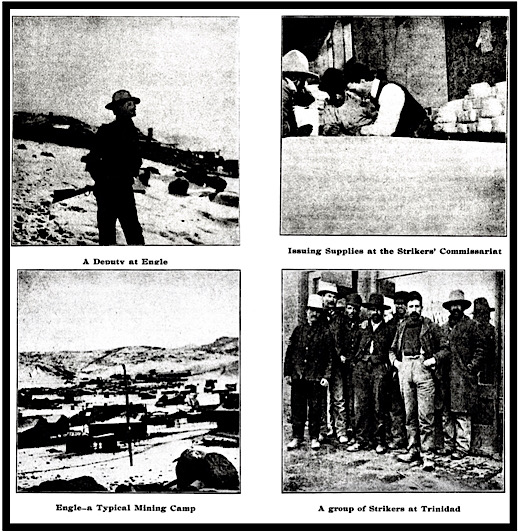
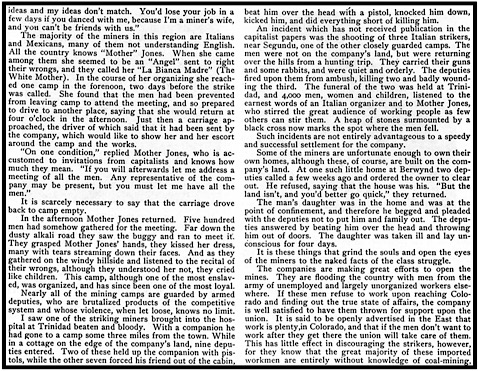

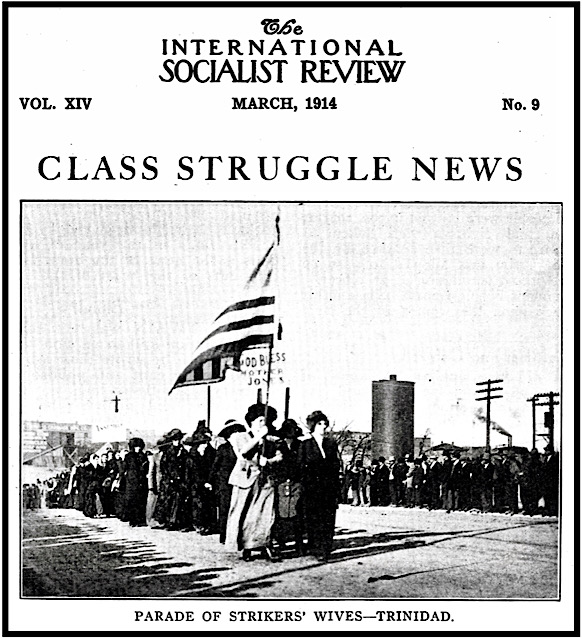
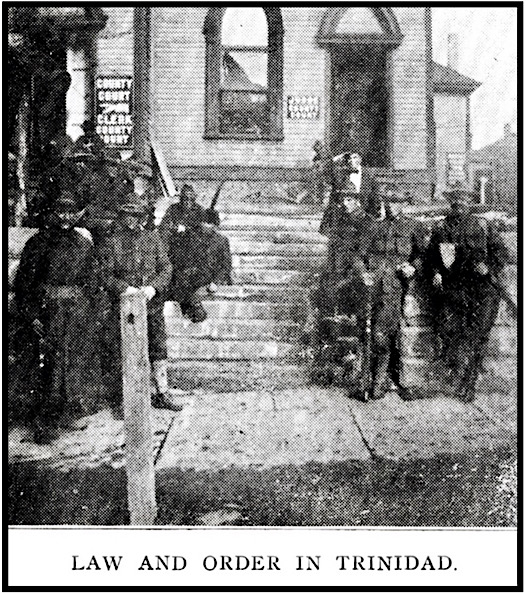
 —————
—————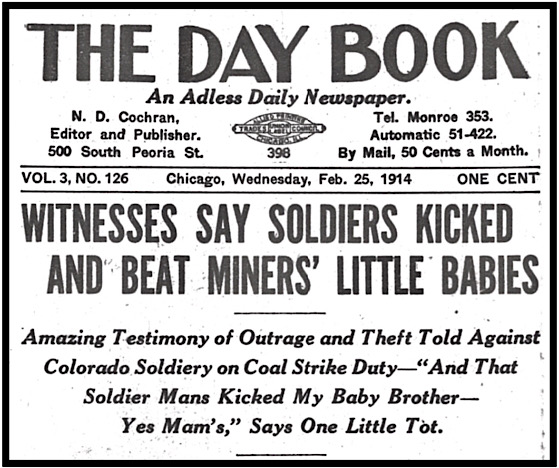
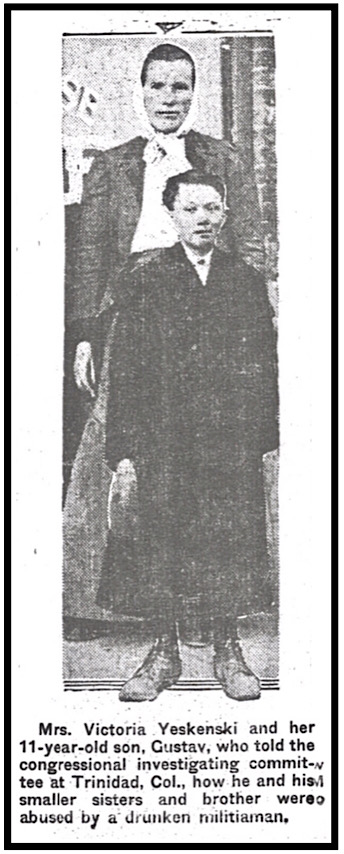
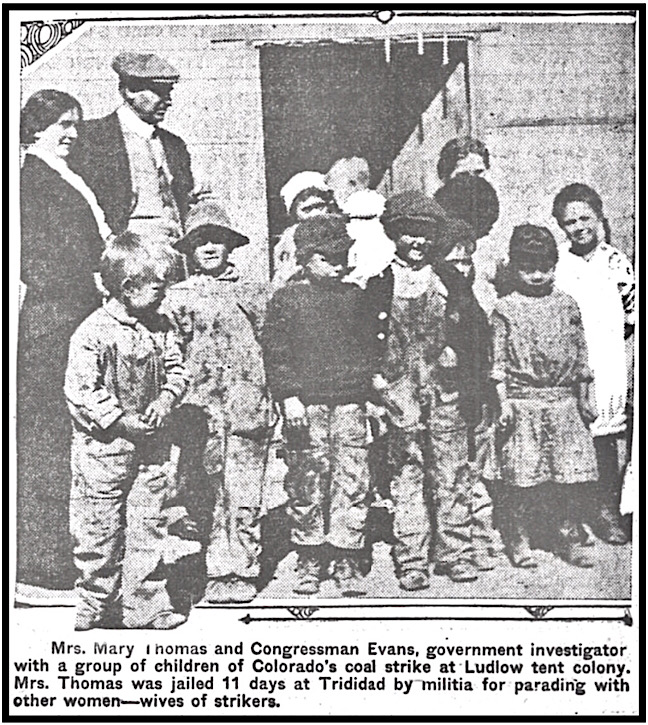
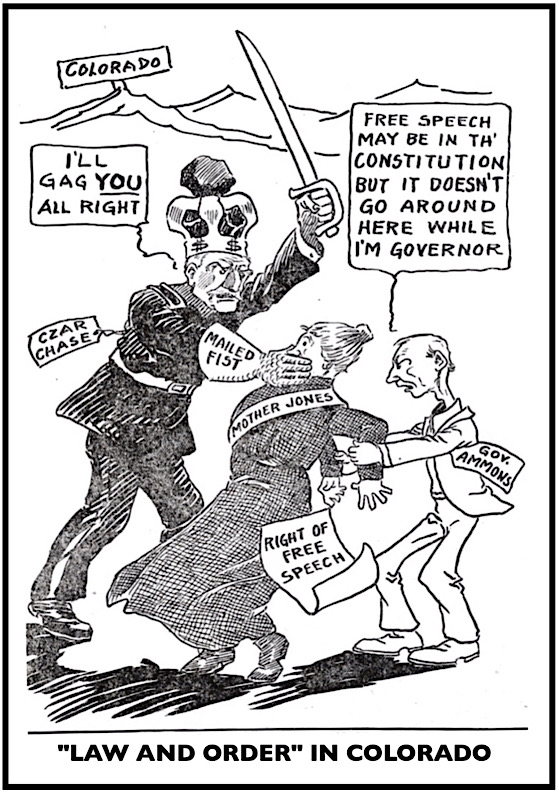
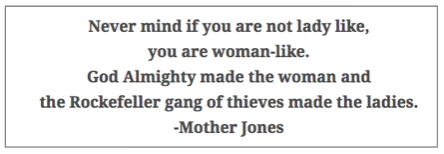 —————
—————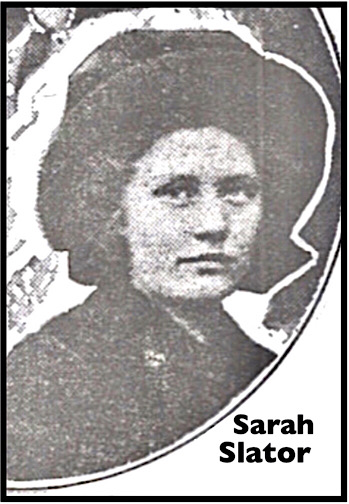
 —————
—————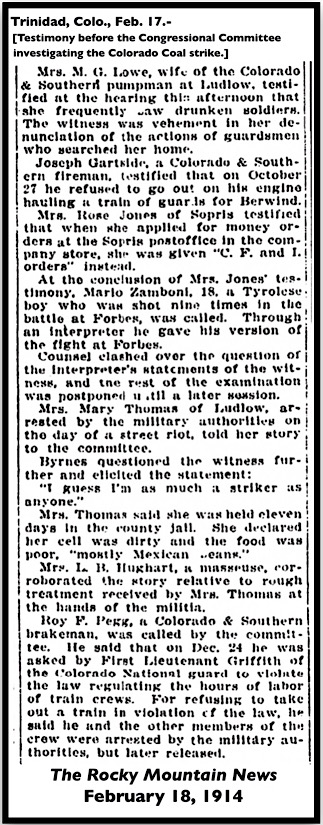
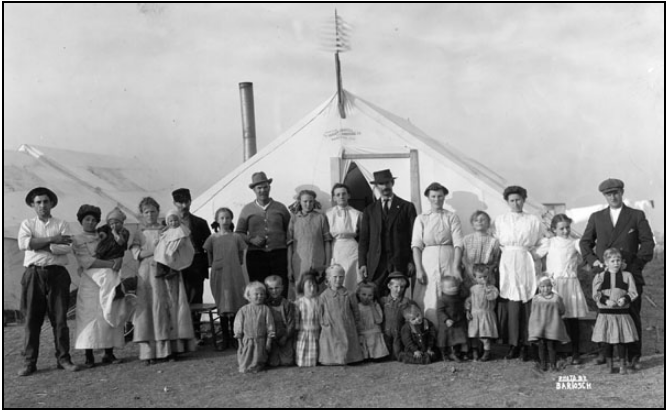

 —————
—————